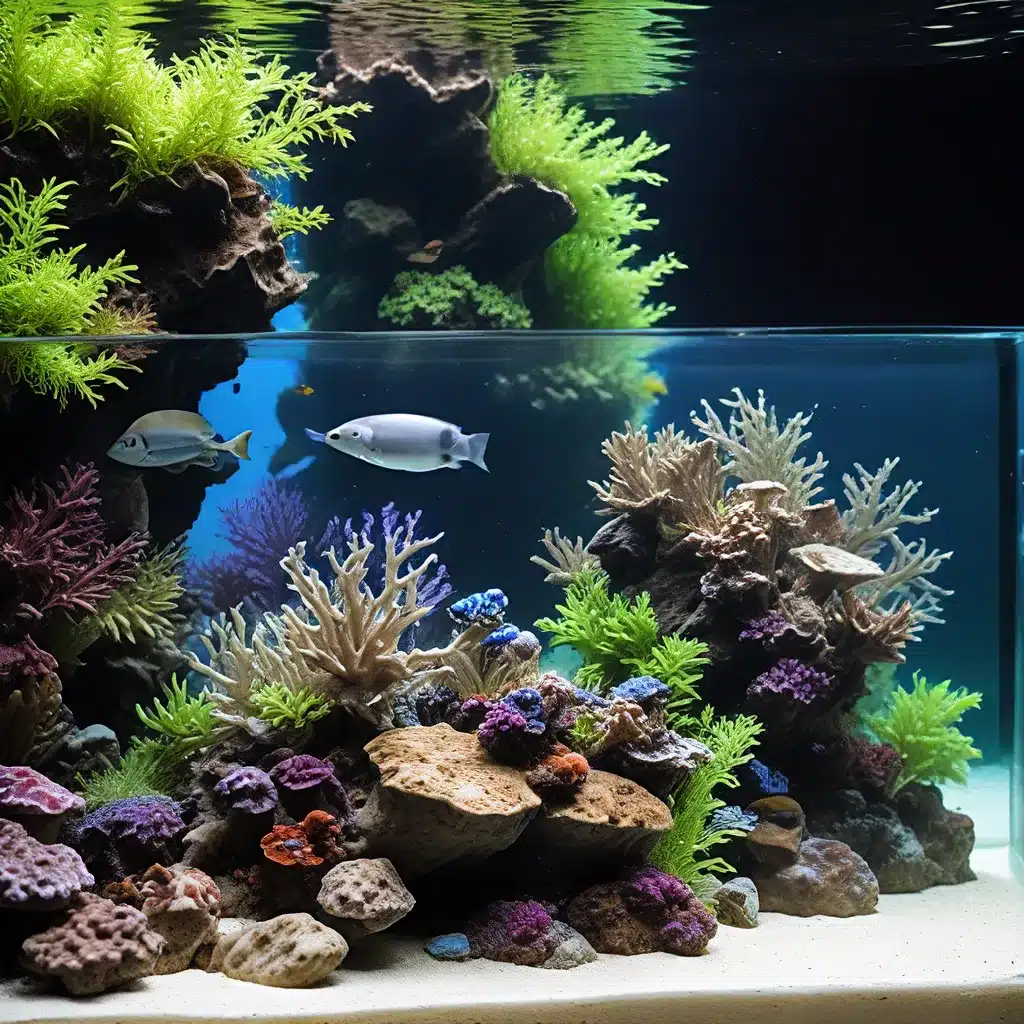
The Importance of Consistent Water Monitoring
Maintaining optimal water quality is the foundation for a thriving marine aquarium ecosystem. Just as human health is closely tied to the quality of the air we breathe and the water we drink, the well-being of your aquarium inhabitants is directly dependent on the chemistry and stability of their aquatic environment. Regularly testing and monitoring key water parameters is a crucial aspect of responsible marine aquarium care.
By understanding the ideal ranges and monitoring fluctuations in factors like pH, alkalinity, calcium, and nutrients, aquarists can identify potential issues early and take proactive steps to address them. Stable water conditions not only promote the vibrant health of corals, fish, and invertebrates but also help prevent the onset of algae blooms, disease, and other pervasive problems.
King Aquarium is dedicated to empowering marine hobbyists with the knowledge and tools needed to maintain exceptional water quality in their aquariums. In this comprehensive guide, we’ll explore the essential water testing protocols, explain the significance of each parameter, and provide practical strategies for keeping your marine ecosystem in optimal condition.
Mastering the Art of Water Parameter Monitoring
pH and Alkalinity: The Delicate Balance
The pH scale, which ranges from 0 to 14, measures the acidity or basicity of your aquarium water. In a healthy marine environment, the ideal pH range typically falls between 8.0 and 8.4. Maintaining this slightly alkaline pH is crucial for the well-being of corals, as they require a stable, pH-buffered environment to thrive.
Closely tied to pH is the concept of alkalinity, which refers to the water’s ability to resist changes in pH. Alkalinity is primarily influenced by the presence of carbonate and bicarbonate ions, and it plays a vital role in stabilizing pH levels. For a marine aquarium, the recommended alkalinity range is typically between 8 and 12 dKH (degrees of carbonate hardness).
To ensure optimal pH and alkalinity, regular testing and the use of appropriate buffer and supplement products are essential. By keeping these parameters within their ideal ranges, aquarists can create a balanced and hospitable environment for their marine inhabitants.
Calcium and Magnesium: The Building Blocks of Coral Growth
Calcium and magnesium are two essential elements for the growth and development of corals and other calcifying organisms in a marine aquarium. Corals, for example, require a steady supply of calcium to construct their intricate exoskeletons, while magnesium helps regulate the uptake and utilization of calcium.
The ideal calcium level for a marine aquarium typically falls between 380 and 450 ppm (parts per million), while the recommended magnesium range is between 1200 and 1400 ppm. Maintaining these levels through the use of specialized supplements and testing kits is crucial for supporting the long-term health and vibrant coloration of your coral colonies.
Nutrient Levels: Balancing the Delicate Ecosystem
In addition to pH, alkalinity, calcium, and magnesium, monitoring the levels of key nutrients, such as nitrate and phosphate, is vital for maintaining a balanced marine aquarium ecosystem. Elevated nutrient levels can lead to the proliferation of unwanted algae, which can outcompete corals and other desirable organisms for essential resources.
The recommended nitrate levels in a marine aquarium should generally be kept below 20 ppm, while phosphate levels should be maintained below 0.1 ppm. Regular water testing and the implementation of effective filtration and nutrient export strategies are crucial for keeping these parameters in check and promoting the overall health and resilience of your aquarium inhabitants.
Developing a Consistent Water Testing Routine
Establishing a routine for testing and monitoring your aquarium’s water quality is essential for maintaining a thriving marine ecosystem. Here are some key steps to incorporate into your water testing regimen:
-
Establish a Testing Schedule: Aim to test your water parameters at least once a week, or more frequently if you notice any significant changes in your aquarium’s condition.
-
Use High-Quality Test Kits: Invest in reliable, accurate test kits that can provide precise measurements of your water’s pH, alkalinity, calcium, magnesium, nitrate, and phosphate levels.
-
Record and Analyze Your Findings: Maintain a detailed logbook or spreadsheet to track your water test results over time. This will allow you to identify trends, spot potential issues early, and make informed decisions about necessary adjustments.
-
Respond Promptly to Fluctuations: If your water parameter readings fall outside the recommended ranges, take immediate action to address the underlying cause. This may involve performing partial water changes, adjusting supplementation, or troubleshooting your aquarium’s filtration system.
-
Stay Vigilant and Adaptable: Regularly monitor your aquarium’s overall health, including the appearance and behavior of your marine life. Be prepared to modify your testing and maintenance routines as needed to ensure the long-term success of your marine aquarium.
By developing and consistently following a comprehensive water testing protocol, you’ll be well on your way to creating and maintaining a vibrant, thriving marine ecosystem that will captivate and inspire you for years to come.
Conclusion: The Key to a Healthy, Flourishing Marine Aquarium
Successful marine aquarium keeping is a delicate balance of monitoring, maintenance, and adaptability. By staying vigilant with your water testing regimen and responding proactively to changes in your aquarium’s chemistry, you’ll be able to provide your marine inhabitants with the stable, nurturing environment they need to thrive.
Remember, the health and beauty of your marine aquarium are a direct reflection of the care and attention you invest in maintaining its water quality. With the right knowledge, tools, and dedication, you can unlock the secrets to a truly exceptional, long-lasting marine ecosystem that will bring you endless joy and fascination. Embark on your journey to aquarium mastery with confidence, and let your passion for the underwater world guide you to new heights of success.

